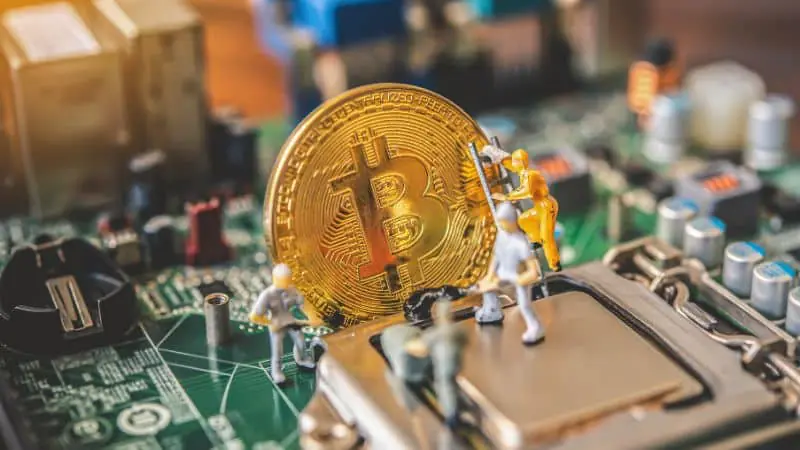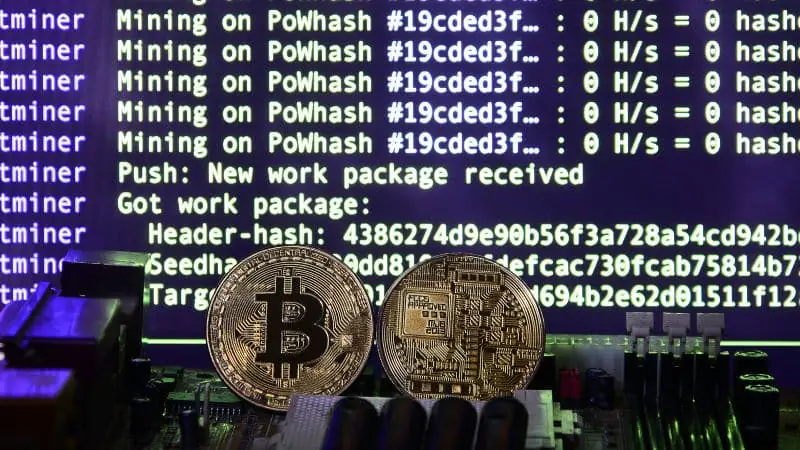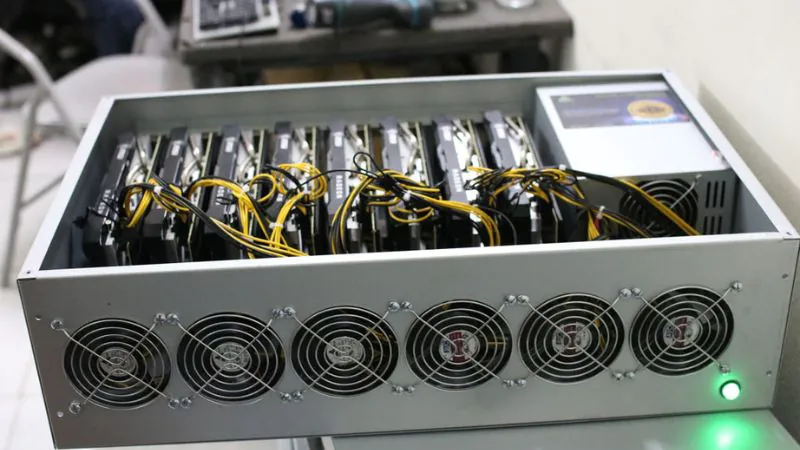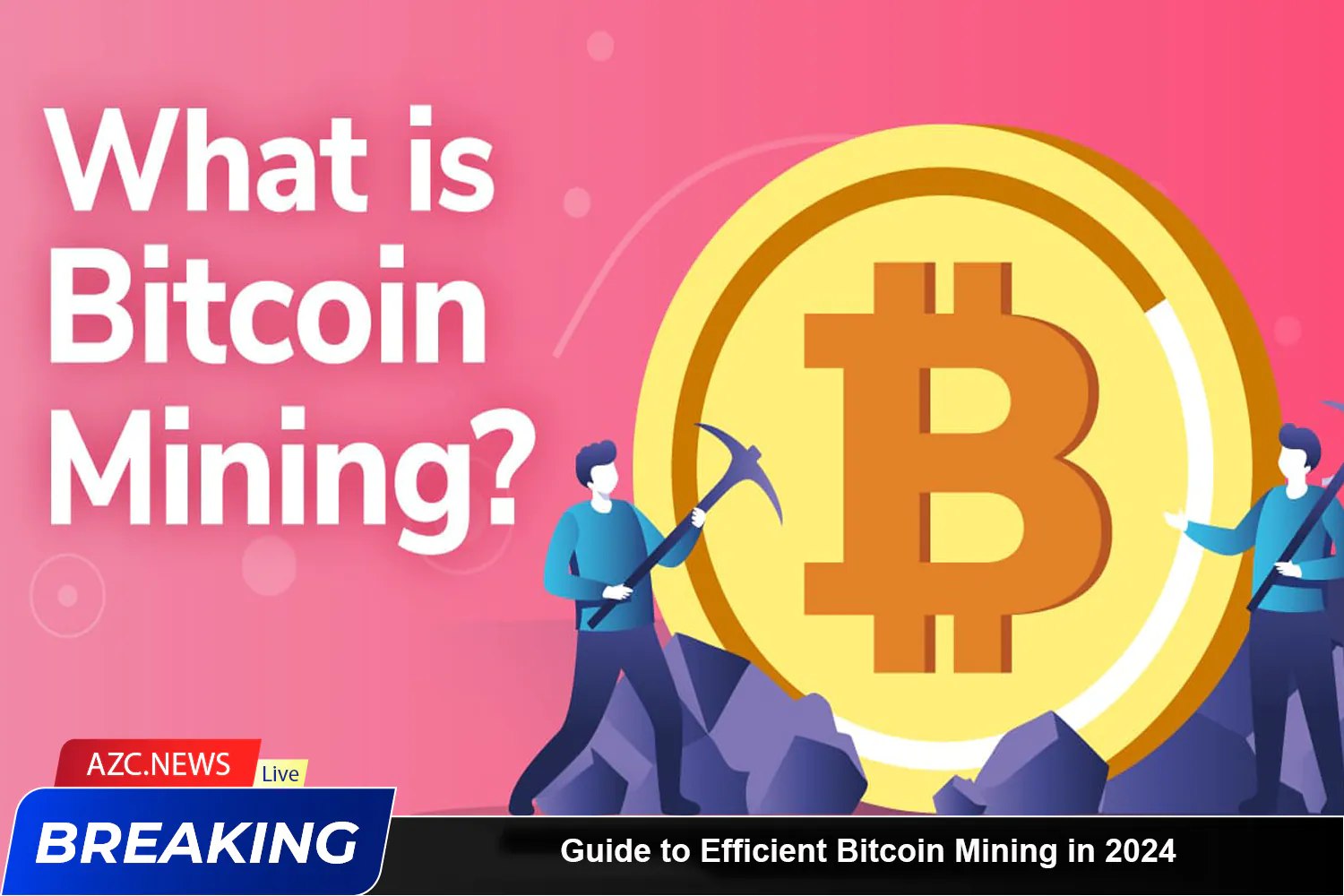In the cryptocurrency community, Bitcoin mining remains a hot topic, attracting the attention of many investors due to its complexity and high-profit potential. Let’s explore how it works and learn about the challenges and opportunities it presents in this article!
What is Bitcoin Mining?
Bitcoin mining is the fundamental process of the Bitcoin network, helping to verify and add transactions to the blockchain. When a Bitcoin transaction occurs, it is broadcasted over the network and aggregated into a block. Before a new block is added to the blockchain, a complex mining puzzle must be solved.

When a miner successfully solves this puzzle, the new block is verified and added to the blockchain, and the miner receives a reward in the form of newly minted Bitcoins and transaction fees from the transactions in that block. Bitcoin mining is not only a way to create and distribute Bitcoin but also a way to maintain and secure the network.
To participate in Bitcoin mining with a computer, users simply need to install an application on their computer and ensure it is connected to the internet. With computer mining, the computer is responsible for controlling and executing important tasks such as decoding transaction blocks on the Bitcoin blockchain network. This requires computational processing power and a stable network connection to efficiently execute complex algorithms and confirm transactions.
4 Bitcoin Mining Methods

- Solo Mining: Users independently participate in the Bitcoin blockchain network and use their mining hardware to solve blocks. If successful, they receive the entire reward for solving that block. However, with the increasing difficulty of block-solving, Solo Mining becomes rare and requires substantial computational resources.
- Pool Mining: Pool mining involves users combining their resources into a mining pool. When a block is solved, the reward is distributed evenly among all pool members based on their contribution. Pool mining helps reduce risk and increases the likelihood of receiving regular rewards. It is also an efficient way to mine Bitcoin.
- Cloud Mining: In cloud mining, users rent Bitcoin mining resources from a cloud mining service provider. Instead of purchasing and maintaining mining hardware, they pay to lease a portion of the provider’s computational power. Although convenient, cloud mining often comes with higher costs and less control compared to traditional mining.
- Hardware Mining: Hardware mining is the most common and traditional form of Bitcoin mining. Users employ specialized devices called mining machines or ASICs (Application-Specific Integrated Circuits) to perform complex computational operations on the Bitcoin blockchain network. These mining machines are specifically designed to rapidly execute SHA-256 operations, the dominant algorithm used in Bitcoin mining. Hardware mining typically yields the highest performance but requires a significant initial investment and consumes substantial electricity.
7 Steps to Efficient Bitcoin Mining Today

- Prepare Mining Hardware: Choose suitable mining hardware such as powerful graphics cards or ASIC mining machines.
- Install Mining Software: Download and install Bitcoin mining software like CGMiner, BFGMiner, or other compatible mining software depending on the hardware you are using. Additionally, if you’re looking for a way to mine Bitcoin for free daily, you can consider Kryptex Miner software.
- Create a Bitcoin Wallet: Create a Bitcoin wallet to store the mined Bitcoin. There are various types of Bitcoin wallets, including hardware wallets, digital wallets, or online wallets like Coinbase.
- Connect to the Mining Network: Connect your mining hardware to the Bitcoin blockchain network via the internet.
- Join a Mining Pool: Mine Bitcoin with a pool to increase the likelihood of success and share rewards.
- Start Mining: Begin Bitcoin mining by running the mining software and connecting to a pool.
- Monitor and Withdraw: Monitor your mining performance and withdraw mined Bitcoin to your Bitcoin wallet.
Mining Bitcoin with a Computer
Mining Bitcoin on a computer requires powerful Bitcoin mining software, demanding that the PC or laptop configuration meets high standards. This is particularly important because the stronger and more modern the Asic chip or GPU, the better it can process algorithms on the Blockchain. In other words, the more powerful the computer, the quicker and more Bitcoin rewards you will receive. A powerful computer configuration will optimize the performance of Bitcoin mining software.
Minimum Requirements for Bitcoin Mining Computer

- CPU: Powerful with high processing capabilities and compatible mainboard.
- Mainboard: Supports at least 4 GPU slots and multiple PCI RAM slots.
- RAM: At least 8GB.
- Storage: At least 250GB, an SSD is recommended to save electricity and speed up software processing when running.
- Power Supply (PSU): From 1000W and above.
5 Steps to Bitcoin Mining on a Computer

- Create a Bitcoin Wallet: Create a dedicated wallet to store Bitcoin.
- Build a Bitcoin Mining System: Prepare all necessary equipment, power systems, and computers.
- Choose a Bitcoin Mining Location: Select a suitable location for Bitcoin mining.
- Install Software: Download and install software that supports Bitcoin mining.
- Find Exchanges: Find safe exchange platforms to buy, sell, or trade Bitcoin.
Top 5 Free and Best Bitcoin Mining Software in 2024

- CGMiner: Suitable for various hardware types and supports mining various cryptocurrencies.
- Awesome Miner: Efficiently manages multiple types of mining hardware and allows remote control.
- EasyMiner: Easy setup with a user-friendly graphical interface, suitable for beginners.
- Kryptex Miner: Optimizes mining profits, can run in the background, and automatically switches devices.
- ECOS: Cloud mining method, no need for physical equipment, and easy to use.
Advantages and Disadvantages of Bitcoin Mining
Advantages

- Income Generation: Bitcoin mining can generate income by obtaining newly minted Bitcoins during the mining process.
- Investment: By holding onto mined Bitcoin, you can leverage the potential for Bitcoin’s value growth and profit from investing.
- Financial Autonomy: Bitcoin mining allows you to have full control over your transactions and assets without relying on any financial institutions.
- Support for Blockchain Network: Participating in Bitcoin mining contributes to maintaining and protecting the Bitcoin blockchain network, ensuring its robustness and security.
Disadvantages

- Investment Costs: Investing in mining equipment and energy costs can be expensive, especially when inaccurate calculations or Bitcoin price volatility impact returns.
- Price Volatility: The value of Bitcoin can fluctuate dramatically, reducing profits or causing losses for miners.
- Competition and Difficulty: Competition in Bitcoin mining is increasing, with many faster mining methods emerging, reducing profitability and increasing the time needed to obtain Bitcoin for many miners.
Related: What is Metaverse? Everything You Need to Know About This Future Technology
Some Notes on Bitcoin Mining

- Thorough Knowledge: Before starting, thoroughly research how the Bitcoin system works, the mining process, and factors affecting mining.
- Cost Evaluation: Carefully consider the costs of investing in mining equipment and energy. Ensure that you can afford these costs and calculate expected benefits.
- Choose Suitable Hardware: Select mining equipment that suits your needs and financial capabilities. Consider the performance and energy consumption of the equipment before making a purchase.
- Risk Management: Understand the risks associated with Bitcoin price volatility, mining competition, as well as security and legal risks. Always have contingency plans and carefully manage risks.
- Security Measures: Ensure that your mining system is securely protected from network attacks and hacks. Use security measures such as regular software updates, strong passwords, and safe storage of Bitcoin.
- Monitoring and Evaluation: Monitor and evaluate the performance of your Bitcoin mining activities. Adjust strategies and investment decisions based on actual results and market conditions.
- Legal Compliance: Ensure that you comply with all legal regulations related to Bitcoin mining in your area. This includes understanding tax regulations and reporting income from mining activities.
Conclusion
Bitcoin mining is not only a way to make money but also an exciting journey to explore the world of blockchain technology and cryptocurrencies. Whether you are a beginner or experienced in this field, understanding the mining process and staying updated with knowledge about Bitcoin mining is crucial for profiting from this activity.








sylvanusominyi100@gmail.com
I love the Bitcoin mining explanation and I want to be getting regular news about Bitcoin mining
Thank you.